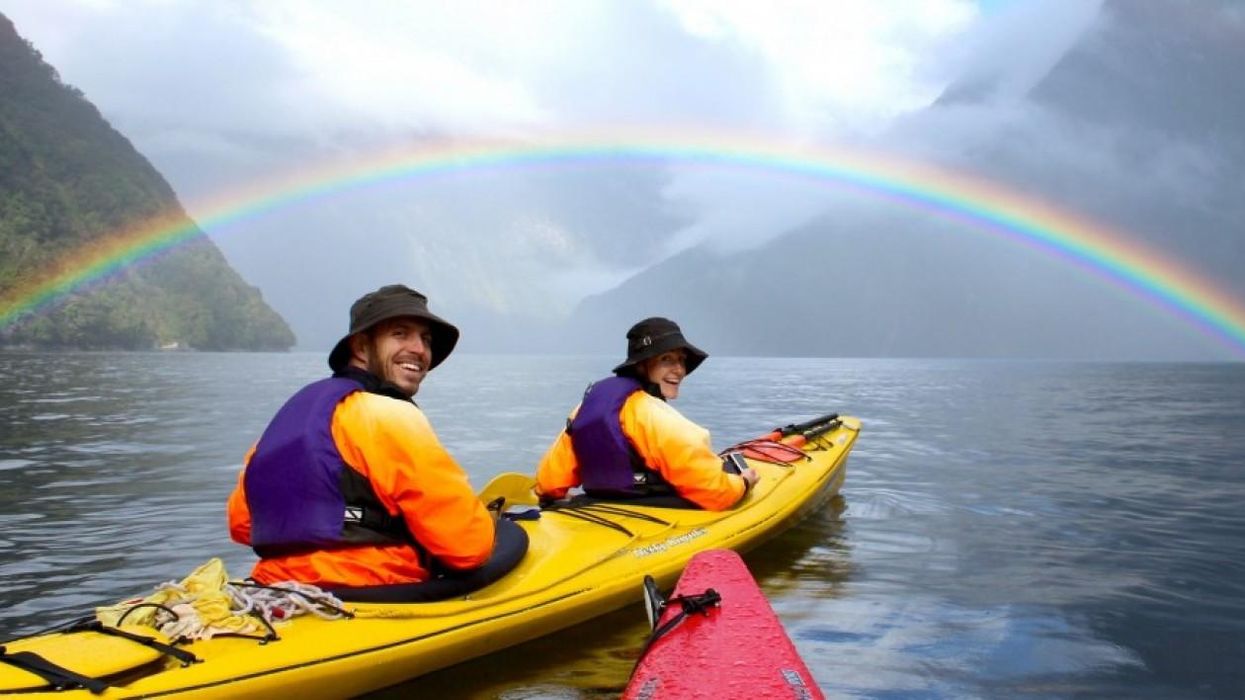
After they got married in 2011, Mike and Anne Howard did something that surprised everyone who knows them.
The two New Yorkers — who had just bought a house together and gotten promotions at their jobs — sold most of their stuff, rented out their home and embarked on what’s become the world’s longest honeymoon: a five-year, 50-country tour of the world.
“We thought, you know, waiting till we are 65 and retired to follow our dreams seemed like a really risky plan,” says Mike, 39.
Let’s get out there and travel while we are young and healthy.
At first, they lived on a daily budget of $39 each, a sum that covered food, lodging, flights and activities. They’ve since whittled that down to $12.20 per person, per day — all while having amazing adventures, like trekking in Patagonia and pub-hopping in Budapest.
“We aren’t trying to live as cheaply as possible; we are trying to live as large as possible,” Mike says.
Keeping those costs down keeps us from being beholden to 9-to-5 jobs.
The Howards started out living on their savings, but now they are making money on the road by sharing their travel tips online at honeytrek.com and by giving lectures — including a Smithsonian Associates talk Thursday called “Travel Hacking 101: How to Travel Longer for Less.”
You don’t have to become a full-time nomad to benefit from the couple’s wisdom. Here are five travel hacks they’ve perfected that anyone can use.
Start a travel fund.
If you sock away as little as $10 a day, you’ll be ready to go somewhere fabulous when the opportunity arises. “If you get fired or quit your job, seize the moment and take a month or two to travel,” Mike says.
It’ll be a life-changing experience.
Go slow.
You’ll burn through your budget if you race around a country seeing all the sights. Instead, immerse yourself in a particular town or village — it’s cheaper and more fun, says Anne, 34. “You have to be somewhere at least a week to begin to get a feel for how people live there,” she says. When you do move on to a new town, take a bus instead of an airplane. It’ll take longer, but you’ll get to see the countryside roll by and maybe even make friends along the way.
Avoid pre-booking hotels for long stays.
You’ll find the best deals on foot, not online, Mike says.
If the hotel has the marketing budget to make a website and buy ads on Google, then they are charging between five and 10 times what the local guesthouse will be charging.
When the Howards arrive at a new destination, they might have a room reserved for a night or two, but then they scout around for a more affordable place.
Try house-sitting.
Right now, expats around the world are coming back to America for the holidays, and they need people to pick up their mail and watch their pets while they are gone, Anne says. You can help them out — and stay in gorgeous international destinations for free — through websites like nomador.com. Plus, you’ll get a local’s-eye view of the place.
The homeowner is proud of where they live and wants you to love it too, so they’ll tell you about their favorite restaurants and introduce you to the neighbors.
Ditch the plastic water bottles.
Though they have traveled through many developing countries with questionable sanitation, the Howards haven’t used a single disposable water bottle. “They can cost $2 or more, and they are terrible for the environment,” Mike says. Instead, they fill their bottles with tap water and then zap it with their SteriPen ($47-$100), which uses ultraviolet light to kill bacteria, viruses and anything else that might make you sick.
It’s an investment that’s more than paid for itself.
Copyright: Washington Post
More: How to get 18 days off work in a row in 2017 using just 9 days holiday













